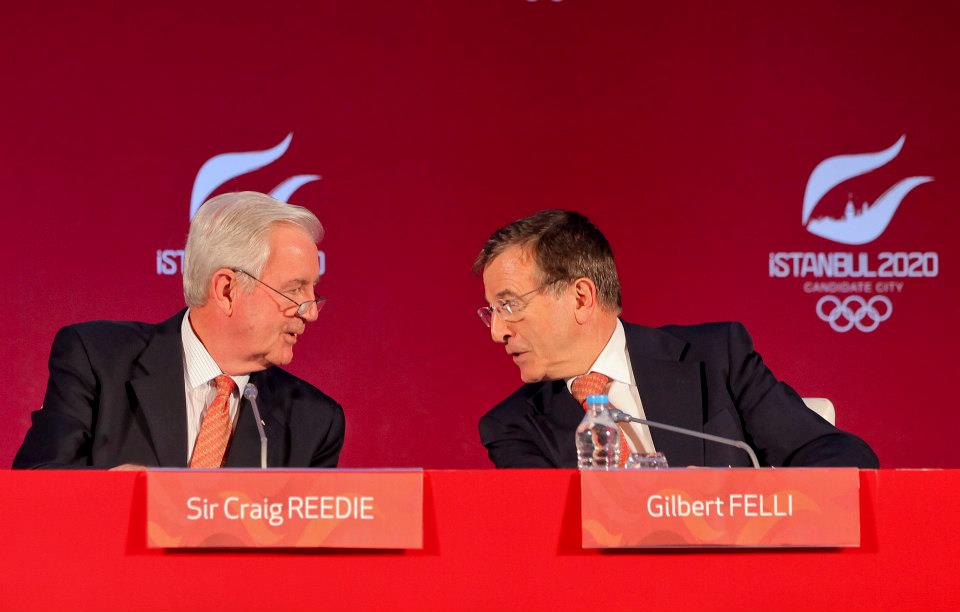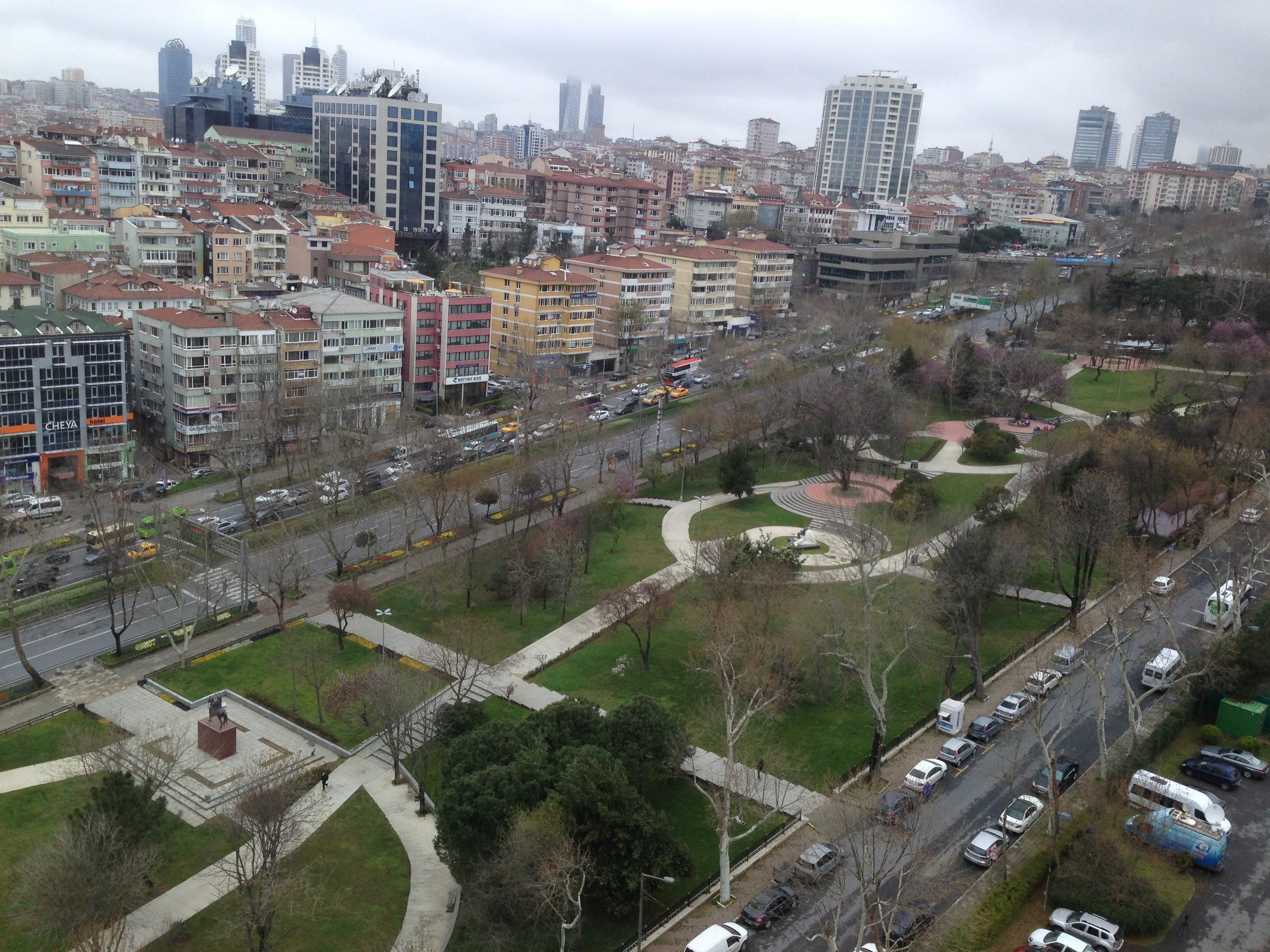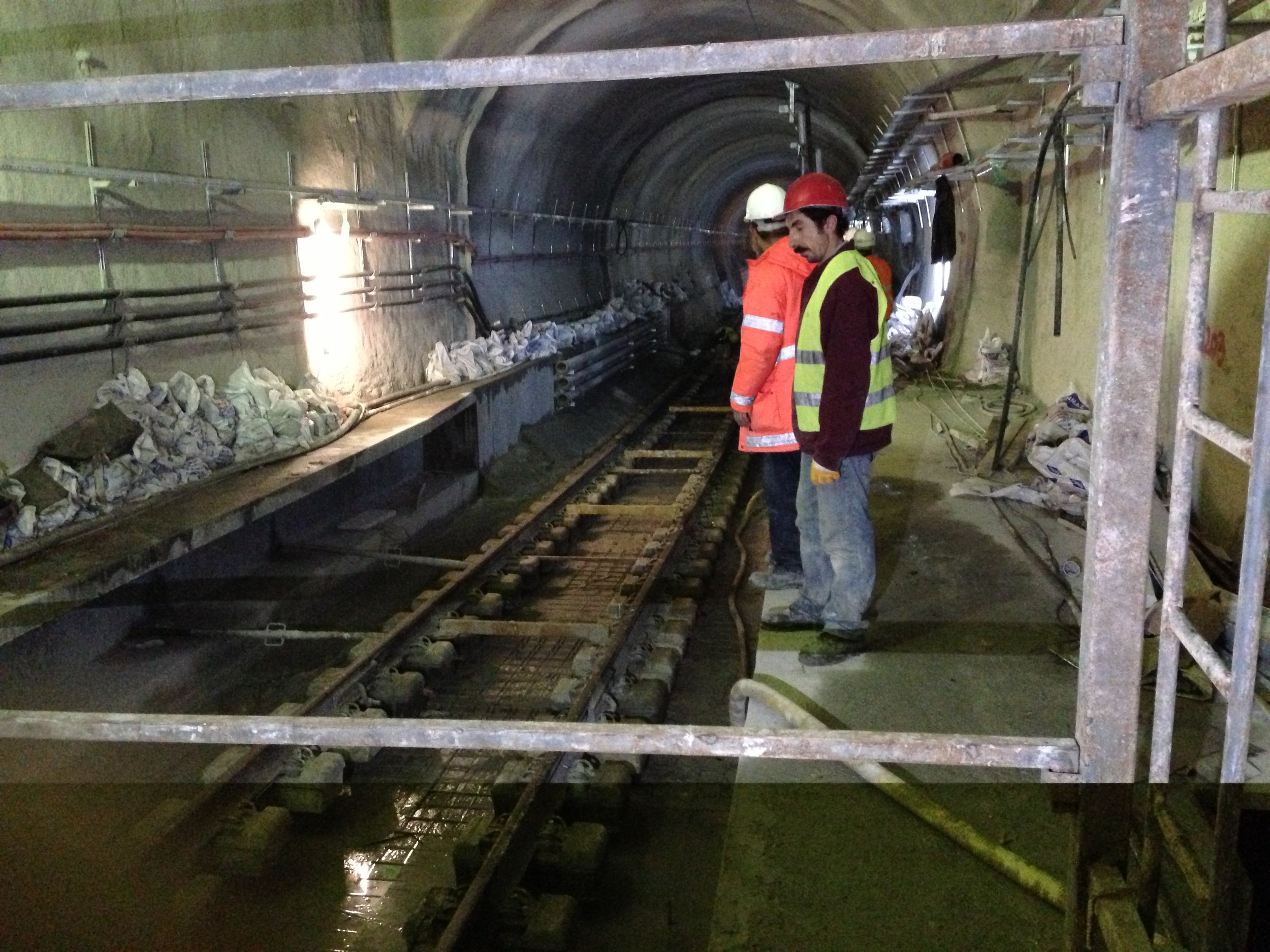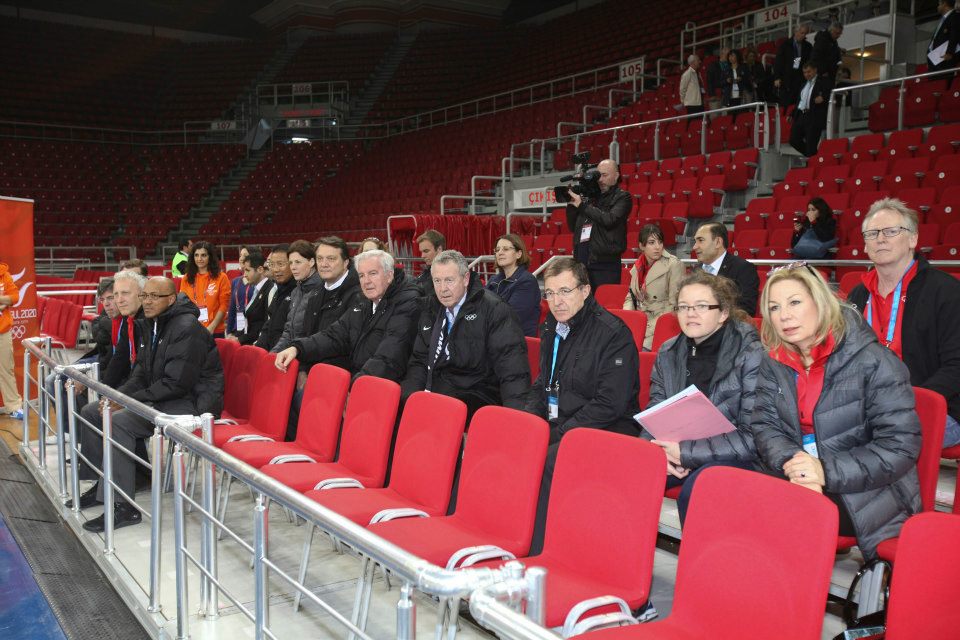ST. PETERSBURG, Russia -- Tokyo 2020's Yuki Ota, a two-time silver medalist in fencing, bounded across the stage and said to the crowd, with enormous energy and enthusiasm, "It is great to be back in St. Petersburg," where he had competed in 2007. Everyone laughed, and he had them from there as he said, "I can promise that Tokyo 2020 will see your sports shine." A few moments later, Jaime García-Legaz, at the lectern for Madrid 2020, tackled the pink elephant in the room head-on -- the Spanish economy. His nation's minister of commerce and international trade, García-Legaz noted that the International Monetary Fund and others project "steady" economic growth for Spain in the next five years, adding, "The fundamentals of the Spanish economy are strong and deep."
Meanwhile, the Turkish minister for youth and sport, Suat Kiliç, his tie knotted just so and his pocket square sitting just right, said in an interview after confidently rocking his presentation, "We believe Istanbul will deliver a unique chance. Not just for the Olympic movement but for global peace."
With precisely 100 days to go before the International Olympic Committee selects the 2020 site, the three cities in the race took their presentations public Thursday for the first time, throwing the race into a fresh phase -- not only revealing strategies but minting personalities likely to frame this campaign homestretch.
The IOC will vote by secret ballot Sept. 7 in Buenos Aires.
Intriguingly, each of the three cities sought to play the safe card -- that is, asserting that it could best offer the IOC financial security in these uncertain economic times.
Given that the three offer wildly divergent construction budgets, each came at the notion Thursday on stage from wholly different approaches.
Each also struck a markedly different tone.
Istanbul, bidding for the fifth time, its first time as an "emerged nation," according to campaign leader Hasan Arat, sought Thursday to highlight the allure of a Games that would go for the first time to a nation with a Muslim majority and that literally and figuratively bridges Europe and Asia.
"You have one city where you see the sun rise on two continents," Arat said.
"We have a city that bridges light and shade, old and new, east and west," Kiliç said. "Istanbul shines like a diamond." At that, up came a short film accompanied by the Rihanna hit "Diamonds."
Mostly, though, the emphasis was this: Istanbul's $19.2 billion infrastructure plan would, according to Kiliç and Arat, be worry-free.
Over the past 10 years, Turkey's economic growth has averaged more than 5 percent annually, Kiliç said. It is now the 16th-largest economy in the world, projected to be in the top-10 -- as ranked by gross domestic product -- by 2023, the 100th anniversary of the founding of the Turkish republic.
As a sign of how things are booming in Istanbul, Kiliç pointed out, just Wednesday Prime Minister Recep Tayyip Erdoğan broke ground on a third bridge over the Bosphorus strait -- a structure that will be the longest combined road and railway bridge in the world, with a combined capacity of 270,000 cars, scheduled for completion by the end of 2016, at a cost, privately funded, of $4.5 billion.
The bridge was not included, incidentally, as part of the $19.2 billion in the bid file -- the tender process had still been ongoing.
Arat asserted, "This week our focus has been risk-free delivery, proving that we are ready to be perfect partners."
Madrid's infrastructure budget would be one-tenth Istanbul's: $1.9 billion. Eighty percent of its venues are already in place -- this being Madrid's third bid in a row.
Simply put," the bid's chief executive, Victor Sanchez, said, "Madrid 2020 makes sense."
He added, "We will have zero white elephants, only four new permanent venues and three temporary venues. All are already budgeted for and fully guaranteed."
Added Alejandro Blanco, the bid's president, "Madrid 2020 is not a bid of dreams -- we've already built them."
García-Legaz, on stage in a clear bid to evoke memories of Brazil's central banker, Henrique Meirelles, key to Rio de Janeiro's winning 2009 campaign for the 2016 Summer Games, said real data shows that Spain leads export growth in the Euro area, with an expected increase of 4.2 percent, compared to 3.3 percent for Germany.
Moreover, Spain will have the second-highest balance of payments surplus in the coming years among the five biggest European economies, behind only Germany.
Meanwhile, in a clever turn, Marisol Casado, the president of the International Triathlon Union, began the Madrid 2020 presentation with this introduction, "I am one of the three IOC members from Spain," a fact that remarkably gets little play but may ultimately prove significant.
Madrid can work the room with Carisol; José Perurena López, president of the International Canoe Federation; and Juan Antonio Samaranch Jr., the IOC executive board member.
Turkey has one IOC member, Dr. Ugur Erdener, president of the international archery federation.
Similarly, Japan has just one active member, Tsunekazu Takeda.
In a vivid contrast from the often-dull affect of the Tokyo 2016 bid, it wasn't just Ota who on Thursday was pumped up.
Takeda's passion for the project was vividly on display. So, too, Tokyo governor Naoki Inose, bid chief executive Masato Mizuno and the others.
The connection that the Japanese team forged with the audience was notable -- and from the get-go, with Takeda, at the lectern, extending "best wishes" to the "European cities of Istanbul and Madrid," then noting, "We are proud to carry the hopes of Asia," home to "more than one billion young people."
When the Japanese team came home last summer from London, half a million people took to the streets in welcome. "Imagine that passion in 2020," Ota said, and as the closed-circuit camera panned to the audience around the LenExpo Center, heads nodded all around.
Tokyo's construction budget: $4.9 billion.
The message from the Japanese: "certain delivery," because as they have noted time and again, they have $4.5 billion of it already squirreled away in the bank, just sitting there. If it were a country, Inose said, Tokyo's economy alone would almost make the global top-10.
Moreover, he said, Tokyo is itself safe -- a different kind of clever tack in a world where security issues are always at issue. "If you lose something," Inose said, "many times it returns to your hands, including [the] cash."
In concluding, Takeda made his pitch: "In these uncertain times, Tokyo offers certainty. You can have total confidence that we will deliver."
Then, continuing slyly: "In a city that bridges and unites two global cultures, east and west -- and which will connect with all five continents.
"Tokyo 2020 will be Games that reach new generations in these challenging and fast-changing times for sport."







